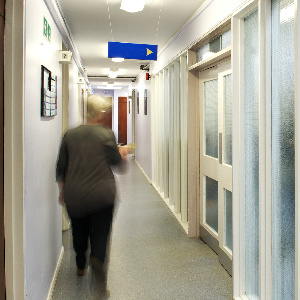GPs asked to prescribe drugs and chase test results for secondary care inpatients

More than one in four GPs have been asked by a secondary care provider to provide primary care services to inpatients, a Pulse survey of more than 700 GPs can reveal.
GPs said the requests were ‘ridiculous’ and that they are treated like ‘house officers’, with no one taking into account the extra workload caused by the requests.
The survey of 727 GPs found 197 (27%) had been asked to provide services to inpatients, 488 (67%) said they had not and 42 (6%) said they did not know.
GPs said they had been asked to provide services ranging from providing blood tests and removing surgical drains, to providing annual reviews to patients with coeliac disease.
A number of GPs said they they were repeatedly asked to prescribe drugs for patients that hospitals could not get hold of, set up further referrals and tests for discharged patients and to provide social care services for patients with mental health issues.
In once case, a GP was asked to prescribe eye drops for an in-patient facing delays at a hospital pharmacy.
Newham GP partner Dr Jim Lawrie said GPs in his area have been used like house officers by secondary care physicians, being asked repeatedly to do blood tests and scans for the renal team.
He said: ‘Many local GPs feel that they are organising tests and collecting results for the consultant to view on the electronic system. Some describe their status as the virtual house officer for the renal physicians.
‘Whilst the local GPs want to do their best for the patients and if possible save money for the commissioning group, no account is taken of the extra work this causes for the GPs.’
A GP from Hertfordshire said primary care services carried out by GPs at their practice for in-patients included ‘managing hospital clinic’s results, organising onward referrals for clinics that they should be doing themselves, picking up midwifery routine antenatal care in absence of provision by their service eg prescriptions and when midwife on leave, A&E letters often expect GP to chase results of scans and investigations’.
A locum GP from North Wales said: ‘This is part of rural practice with cottage hospitals, but sometimes we are asked to provide scripts for items the hospital pharmacy will not stock or provide, which seems ridiculous and possibly fraudulent.’
Hospital inpatients can also fall under a practice’s remit if the institution does not provide ‘adequate primary medical services’, with the BMA’s guidance saying that there are ‘unlikely to be reasonable grounds for refusing to register such patients’.









